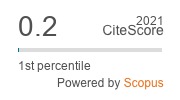A Concise Evaluation of Artificial Intelligence in Agriculture
DOI:
https://doi.org/10.17762/msea.v71i4.1456Abstract
The premise underlying artificial intelligence is that it is possible to characterise human intelligence in a way that enables a computer to readily reproduce it and carry out tasks. These duties might range from the most elementary to those with far more complex business implications. Any industry dependent on certain tasks would profit from the adoption of intelligent machines. Agriculture and livestock husbandry are among the most important and oldest occupations in the world. It is essential to the overall functioning of the economic system. The agricultural industry comprises a global market of $5 trillion dollars. It is estimated that the global population will surpass nine billion by 2050; therefore, agricultural production would need to expand by 70 percent to meet demand. As a result of population growth, the existing land and water resources will no longer be sufficient to maintain the demand supply chain. As a result, we must design a more insightful plan, become more productive in our growth, and become more efficient in our growth. In this paper, I will explore the challenges that farmers face while adopting traditional farming practises, as well as the ways in which AI is revolutionising agriculture by replacing traditional methods with more effective methods, so contributing to the global improvement.




